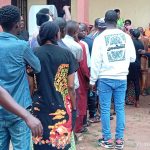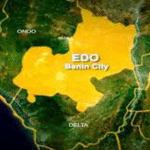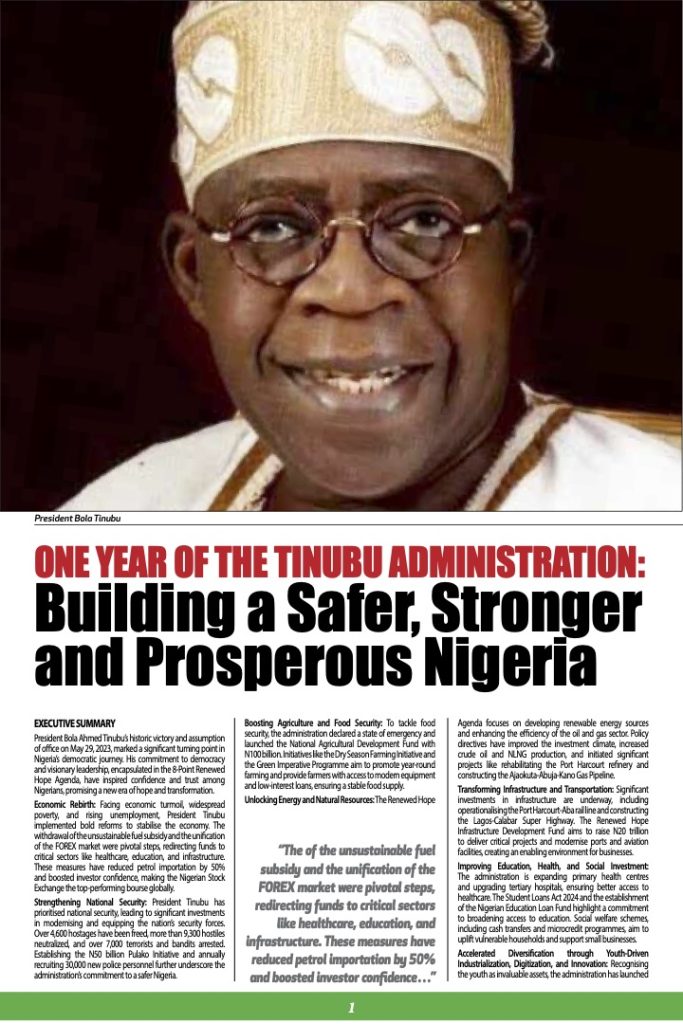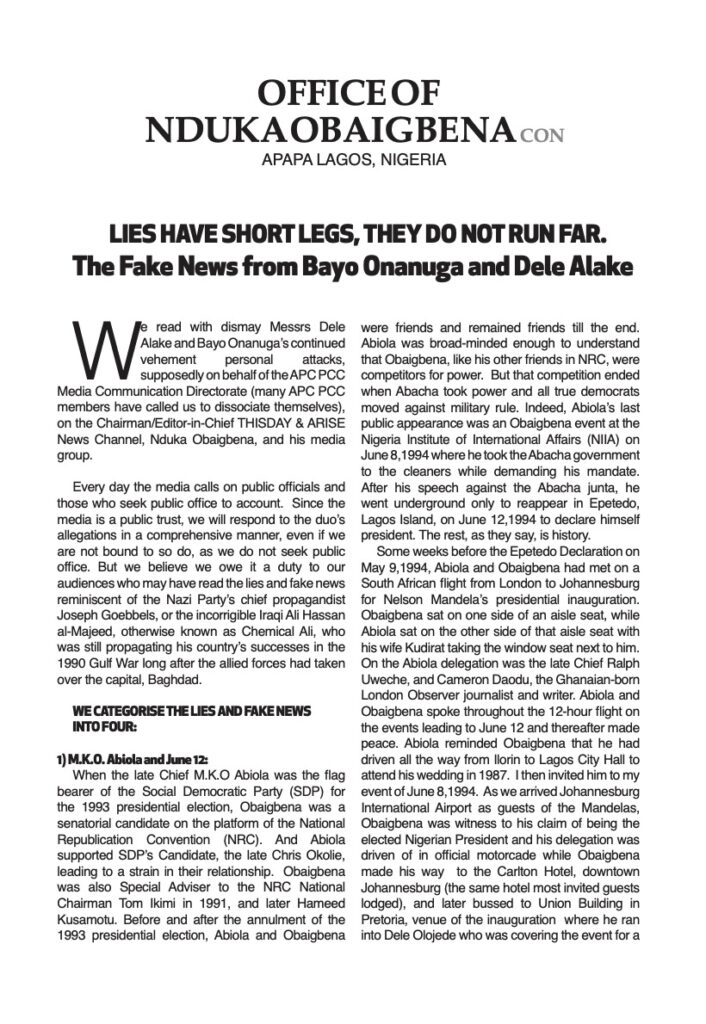Latest Headlines
One Year of PBAT as ECOWAS Chairman: The Dilemma of another Year of Tchiani-PBAT Confrontation
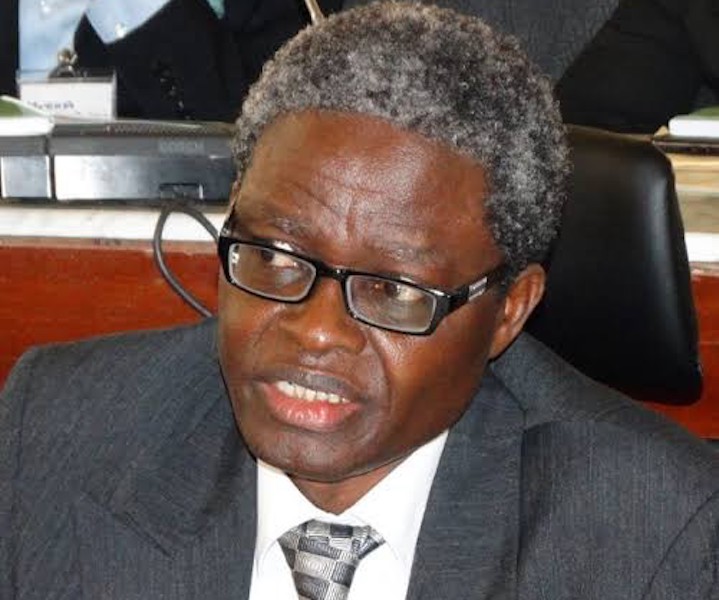
Bola A. Akinterinwa
On Sunday, 9th July, 2023 President Bola Ahmed Tinubu (PBAT) was unanimously elected the Chairperson of the Economic Community of West African States (ECOWAS) in Bissau, Guinea Bissau, one of the two Lusophone Member States of the ECOWAS. On 9th July, that is, in two days’ time, it will be one year of PBAT as the primus inter pares of the ECOWAS Authority of Heads of State and Government. In the same vein, the Nigerien leader, Brigadier General Abdourahamane Tchiani, who was Commander of the Presidential Guards when he ousted President Mohammed Bazoum, took over power on July 26, 2023 and will also be marking one year as the leader of the Conseil national pour le sauvegard de la patrie (National Council for the Safeguard of the Homeland), which the ECOWAS and the French President, Emmanuel Macron, refused to recognise. A Tchiani-PBAT confrontation is likely if, reportedly, PBAT continues as ECOWAS Chair in 2024-2025.
Continuation is welcome for many reasons. First, the initiative to form the ECOWAS was Nigerian and was implemented in collaboration with Togo. Since the inception of the ECOWAS on 28 May 1975, Nigeria has generally accounted for about one-third of the ECOWAS’ assessed dues. Nigeria has been playing active parts in the development of the organisation. However, in 2023, the foundation for partial dismantlement of the ECOWAS was laid under the chairmanship of PBAT. The ECOWAS Treaty was reviewed in Cotonou, Benin Republic, on 24 July 1993, meaning that the review will be 30 years old this month, and yet, the ECOWAS is increasingly still found wanting. Consequently, PBAT needs to be given the opportunity to re-polish Nigeria’s and ECOWAS image.
Secondly, PBAT is a strong proponent of development of democracy and, particularly, true federalism. His dream of possibly taking the advantage of the ECOWAS to consolidate democratic values in Nigeria is yet to be realised. In fact, all that he declared as a newly elected ECOWAS chairman are still far from being accomplished. Therefore, and without any whiff of doubt, there is nothing wrong in seeking another year of service. However, there is the challenge of how to manage the next one year of both PBAT’s order and Tchiani’s counter-order to prevent the encounter emanating from it from resulting into another disorder.
First One Year of PBAT
The first one year of PBAT as ECOWAS chairperson was largely fraught with the intention to promote the development of democratic culture, nationally, regionally or plurilaterally. He wanted to be seen as a genuine agent of democracy in various ramifications. His first year was also fraught with ECOWAS’ zero tolerance for unconstitutional changes of government in the ECOWAS region. His personal animosity for dictatorial, military rule in Africa was necessarily exacerbated with the July 26, 2023 coup by Brigadier General Tchiani.
Earlier, Mali had recorded two coups within one year and ECOWAS could not prevail on Mali in spite of its politico-economic sanctions. While still finding a way out, the Burkinabe coups followed. And as if these coups were not enough, the Tchiani coup also reared its ugly head in Niger. All of these gave a basis for PBAT to want to take the bad end of the stick.
And true enough, he did take the bad end of the stick. As clearly noted in an Aso Rock press release (vide ehouse.gov.ng), PBAT made it clear that threats to regional security were destabilising and should be quickly taken more seriously. As he put it, ‘on peace and security, the threat has reached an alarming level, and needs urgent actions in addressing the challenges. Indeed, without a peaceful environment, progress and development in the region will continue to remain elusive. In this regard, we must remain committed to the utilisation of all regional frameworks at our disposal to address the menace insecurity.’
What is noteworthy about this statement is that it was made on July 9. 2023, that is, about 16 days before the Niger coup. Besides, it was made about 43 days after his inauguration as Nigeria’s Number One Citizen. And perhaps more importantly, in the strong belief that the ECOWAS had the necessary wherewithal to do battle with the putschists and easily win, PBAT noted in his post-appointment statement that ECOWAS security architecture ‘covers a wide range of areas that involved kinetic and non-kinetic operations, including preventive diplomacy.’ Most noteworthy, PBAT said ‘there is also the Regional Plan of Action on Fight against Terrorism 2020-2024, as well as the operationalization of the ECOWAS Standby Force on Fight Against Terrorism.’
It was against this background that PBAT promised to ensure he, along with other Heads of State ‘immediately harmonize these plans and mobilise resources, as well as the political will towards the actualisation of the initiatives. As terrorists do not have boundaries, we must work collectively to have an effective regional counterterrorism measure.’ It couldn’t have therefore been surprising to know that PBAT expressed ‘unalloyed commitment to provide the necessary leadership with dedication to serve the interest of the Community.’
PBAT was willing to do his best but the environmental conditionings would not enable: destructive strategic miscalculation, domestic hostility in Nigeria, the court case instituted by Kayode Ajulo, Senior Advocate of Nigeria, and Professor Bola A. Akinterinwa at the ECOWAS Court against PBAT, ECOWAS et al to prevent any military assault on Niger Republic, etc. The ECOWAS gave a 7-day ultimatum to Niger to release President Mohammed Bazoum and return to constitutional democracy or face the wrath of the ECOWAS as a collective. The ultimatum was considered by the ASS as very offensive, very illegal, and very unacceptable. The ECOWAS Treaty, originally and as amended, did not provide for threat and use of force in settling disputes. In fact, what was considered most annoying was the perception of the ECOWAS, and particularly PBAT, as being used as a tool to fight Niger Republic with which Nigeria has the warmest ties in the neighbourhood. The damage to the relationship appears to have been damaged beyond immediate diplomatic repair in the immediate. The statement of Omar Alieu Touray, the President of the ECOWAS Commission since 2022, lends much credence to this observation.
At the recently concluded 92nd Ordinary Session of the Council of Ministers on Thursday, July 4, 2024 in Abuja. President Touray noted that, since January 24, 2024, when Mali, Burkina Faso, Niger gave notice of their withdrawal from the ECOWAS, several efforts had been made to appease them but to no avail. In the words of President Touray, ‘despite our entreaties, in the form of softening of sanctions, invitation of the governments to technical meetings, and request for meetings, we have not yet gotten the right signals from these Member States.’
Additionally, The Gambia-born Touray also had it that ‘it has become evident that changes in the international system, which is significantly affecting our Member States, are playing a role. To this end, we are proposing a Special Summit on the Future of our Community to examine the developments in the world and their impact on our community to rethink our integration in terms of governance, relations with external partners, our Community norms and values, and approach to emerging.’
From PBAT’s policy intendment to President Touray’s observation of recalcitrant attitude of Mali, Burkina Faso, and Niger to re-join the ECOWAS, there is no disputing the fact that the last one year of PBAT as ECOWAS chairperson is a failure. For three countries to withdraw their membership of the ECOWAS, regardless of the rationales, is a manifestation of a big failure. Although the failure can still serve as a catalyst for a more quickened integration, the one year of PBAT raises many issues of governance and survival.
First, should the ECOWAS not begin to promote more of sub-regional integration? This question is raised in light of Article 1(e) of the 1991 Abuja Treaty Establishing the African Economic Community which provides for the establishment of sub-regions? The ECOWAS already has the Alliance of Sahel States (ASS/AES) region to contend with. Even though Chad and Cameroon are geo-politically located in the Central Africa region, shouldn’t PBAT begin to think of Nigeria and her immediate neighbours as a second sub-region to be created? In other words, rather than begin continental integration from the regional level, why not begin from the sub-regional level? Nigeria, Benin, Togo and Ghana can also constitute a sub-region. Rather than seeking to confront the ASS sub-region, there is the need for re-strategy for PBAT as Nigeria’s and ECOWAS’ leader. Thirdly, Article 1 (d) of the 1991 Abuja Treaty divided Africa into five regions while Article 1(e) enables the creation of sub-regions out of the regions. The current thinking of African leaders is that the Caribbean should be considered as the sixth region of Africa. This point cannot be ignored in Nigeria’s foreign policy calculations.
Again, even though PBAT became the ECOWAS Chairperson in July 2023, the ECOWAS did not record any major achievement at the economic development level before then. The final communiqué of the 64th Ordinary Session of the ECOWAS Authority done on 10th December 2023 in Abuja, Nigeria admitted our observation: ‘notably the regional growth rate slowed to 3.7% in 2023, compared to 3.9% in 2022, annual average inflation peaked at 20.0%, compared to 17.3% in 2022 and public debt deteriorated further to 48.8% of GDP, compared to 36.8% of GDP in 2022.’
Besides, the launch of the Eco currency was postponed until the 65th Session of the ECOWAS Authority. In fact, on regional peace and security, the Authority only noted the ‘continued challenges of insecurity and instability in the region that have been engendered by terrorism, violent extremism, transnational organised crime, as well as ‘Unconstitutional Changes of Government.’ If there was not much to say about economic transformations and containment of violent extremism and insecurity in 2023, what about the first half of 2024 and the following one year?
Tchiani-PBAT Confrontation, 2024-2025
As noted earlier, there is nothing wrong in PBAT’s aspiration to continue to chair the ECOWAS Authority, but for as long as the quest will not place a heavier financial burden on Nigeria. There is nothing to suggest that there will not be heavier burden for PBAT to carry. First, the ECOWAS military Chiefs of Staff have recommended that supporting Member States in fighting terrorists and containing threats to constitutional changes of government would require two options: establishing a 5,000-strong brigade at an annual cost of $2.3bn or deployment of troops on demand of $360m annually (aljazeera.com). Whatever is the choice, there is always a financial burden to carry.
Secondly, there is likely to be direct confrontations between Niger and Nigeria. This is because all the ECOWAS’s diplomatic engagements aimed at pacifying the ASS countries have been to no avail as of now. The recalcitrance may be due to the consideration that neither Nigeria, in particular, nor the ECOWAS, in general, is in position to stop the expanding the Sahel-based terrorist groups from reaching the coastal states.
The ASS is promising to do what the Multinational Joint Task Force in the Lake Chad Basin, the Accra Initiative, the ECOWAS Standby Force, the United Nations Integrated Strategy for the Sahel (UNISS), etc. have not been able to do, by re-committing themselves to stop the terrorists
For instance, the incumbent President of the ECOWAS Commission, Omar Touray,
First told the United Nations Security Council in July 2023 that about 500,000 people in the ECOWAS region were refugees and 6.2 million were internally-displaced. Explained differently, in Burkina Faso for example, there were 2,725 attacks in between January and June 30, 2023. In the same period, Mali recorded 844 attacks while Niger had 77 compared to Nigeria’s 70 attacks. In the eyes of Omar Touray, this situation is due to organised crimes, armed rebellion, unconstitutional change of government, illegal maritime activities, and fake news. These are challenges that are still begging for sustained attention and which whoever becomes the next chairperson of the ECOWAS must deal with.
Additionally, Omar Touray also noted at the opening ceremony of the 92nd Ordinary Session of the ECOWAS Council of Ministers, chaired by Nigeria’s Minister of Foreign Affairs, Ambassador Yusuf Maitama Tuggar, OON, that ‘the developmental goal of ECOWAS integration is being questioned due to various crises. Unity and solidarity are crucial. The upcoming Summit aims to establish minimum cooperation points for Member States to address community-wide issues.’
Foreign Minister Tuggar lent further credence to Omar Touray’s observation by also noting that ‘our region still faces complex challenges that require dedication, commitment, and concerted action. I implore all of us to maintain the strength of unity and cooperation that has always guided our deliberations.’ Thus, many are the challenges waiting for PBAT to attend to in his next tenure in office as ECOWAS Chairperson.
Under normal practice, chairmanship of the ECOWAS is rotated, especially on the basis of alphabetical order. But several times, Member States can ask to play host to an ECOWAS summit. Besides, when the regional body is fraught with financial challenges, a willing country can be pleaded with to accept the chairmanship of the organisation. It was within this framework that General Ibrahim Badamasi Babangida served as Chairman consecutively from 27 August 1987 through 1989. General Sani Abacha similarly served from 27 July 1996 to 8 June 1998. Umaru Musa Yar’Adua served from 19 December 2008 to 18 February 2010. Goodluck Jonathan also served for two years consecutively from 18 February 2010 to 17 February 2012. While it can be observed that Yar’Adua couldn’t complete two years in office, Nigeria was still given the opportunity to complete his tenure with the election of Goodluck Jonathan for an extra two years.
Apart from the issue of likely financial burden for Nigeria to carry, there are also the implications of the carving out of a sub-region from the ECOWAS region. As a result of the breakaway of the ASS members from the ECOWAS, the organisation has decided to cancel the $500m development projects in ASS countries for refusing to re-join the ECOWAS. Will the cancellation or withdrawal from the G-5 engender any setbacks in the confederation and eventually the federation agenda of the ASS countries?
As earlier noted by the ECOWAS Commission President that the ASS countries did not respond to the peace-making efforts of the ECOWAS Authority in 2023, the decision of the Authority to empanel a committee of Heads of State comprising H.E. Faure Gnassingbe of Togo, H.E. Julius Maada Bio of Sierra Leone, and Representative of Nigeria and the Beninois President to engage with the Conseil national pour le sauvegarde de la patrie, cannot but be a necessity. The engagement and the impact of the Committee is yet to be felt.
In fact, the problem at the West Africa regional level became more complicated with the establishment of the ASS in September 2023, and the withdrawal of Burkina Faso and Niger Republic from the Group of 5 for the Sahel Joint Force (FC-G5S). The FC-G5S was created in 2017. Chad, Mali, and Mauritania were members. The aim was to contain organised crimes and terrorism. In June 2022, Mali withdrew from the G-5-Sahel while the three ASS/AES countries came up with a new Joint Force to fight terrorist groups on 7 March 2024.
Following their withdrawal from the ECOWAS on 28 January 2024, the ECOWAS Authority lifted the economic sanctions placed on Niger and eased those on Mali but to no avail. The lifting of sanctions has its own challenges. One main challenge here is that, following the replacement of the Wagner Group, a Russian security firm, with the Africa Corps, Russia took advantage of Niger’s directive to the US forces to leave the country on 16 March 2024 to strengthen its military cooperation with the ASS: deployment of about 100 personnel of Africa Corps to Burkina Faso; arrival of Russian forces in Niger on 10 April; signing on 25 May of a Charter that extended the return to civilian rule by 5 years with effect from July 2, 2024, etc. All these developments are the challenges to be faced by PBAT in the second half of 2024.
In the same vein, on 25 January 2024, the 2015 Agreement for Peace and Reconciliation in Mali was terminated and replaced with an ‘Inter-Malian Dialogue for Peace and National Reconciliation’ which recommended an extension of Mali’s transition agenda by 3 years, that is, until 2027. Another challenge for PBAT is the closure of Niger’s border with Benin Republic purportedly because of Benin’s support for the ECOWAS closure of borders with Niger Republic. True enough, Niger is aggrieved but for how long can the grievance be sustained? If Mauritania withdrew from the ECOWAS and still find the need to come back and seek the status of an observer, it simply means that the ECOWAS has other advantages that cannot be easily done away with. In the same vein, the breakaway of the ASS countries does not mean that they will not come back either as full original members or otherwise. The next six months can still witness a fundamental change of position.
Grosso modo, the continuation of PBAT’s chairmanship of the ECOWAS is really a desideratum for three main reasons. First, Nigeria should not be remembered as being the initiator of the regional organisation and also be remembered for the disintegration of the same ECOWAS under the leadership of a Nigerian Chairperson. PBAT should continue to do the necessary to amend. Secondly, the breakaway of the ASS countries is consistent with the regional and sub-regional integration processes provided for in Article 1 (d) and (e) of the 1991 Abuja Treaty Establishing an African Economic Community. Consequently, the ASS is legal and legitimate. The challenge for PBAT is how to manage the ASS as a sub-region and still as a constitutive member group of the ECOWAS. In this regard, the ASS countries cannot but still come back sooner or later but subject to their not being seen or treated as underdogs. Thirdly and most importantly, the strategic miscalculation of giving a 7-day ultimatum to Niger has the potential to be a source of greater strength for the ECOWAS. It affords the opportunity to rejig the ECOWAS Standby Force, to strengthen the anti-terrorism fight, and to see more clearly henceforth. The dilemma of the next one year, however, is how to reconcile ECOWAS interests with foreign interests. PBAT is at the epicentre of all these questions and should be allowed to find answers to them.

